
Tech & Sci
15:33, 28-Aug-2017
Virtual academy connects Chinese students to the world
Ty Lawson
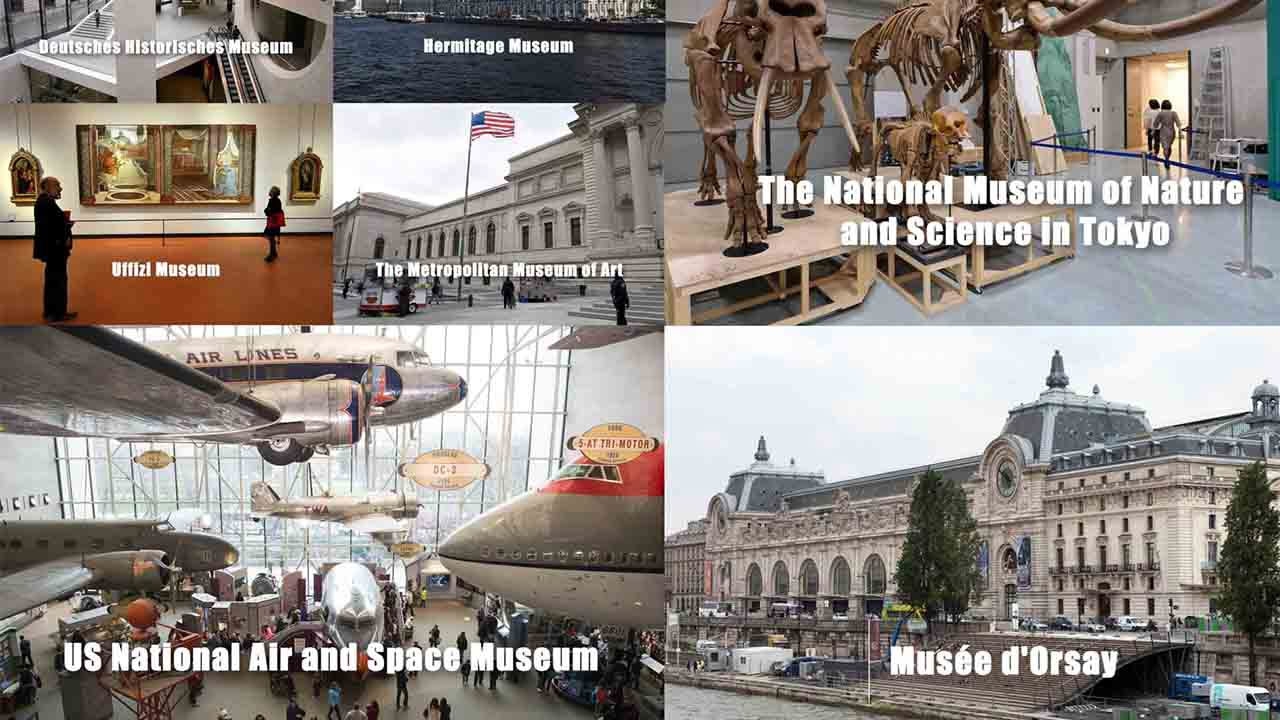
In a matter of two hours, students from nearly a quarter million Chinese households went on a virtual tour of 10 of the world's most famous museums.
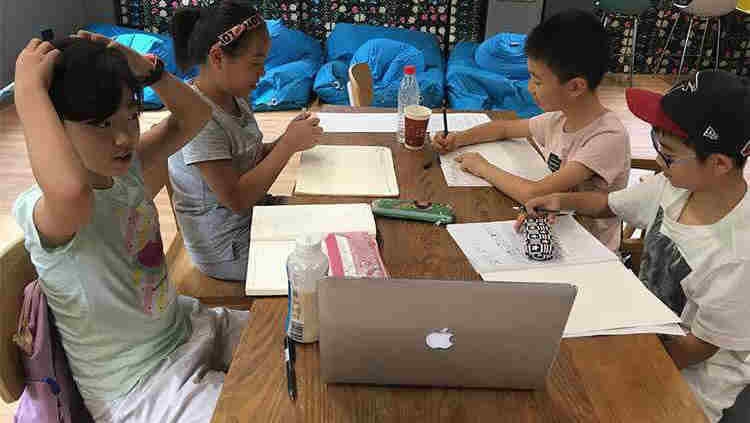
Students from the Aha School/ Courtesy: Aha School
Students from the Aha School/ Courtesy: Aha School
"The vast majority of Chinese parents and educators now recognize that the rote learning approach to education is not enough to meet children’s needs and that early exposure to liberal arts is vital to raising a successful child," said Wang Yuhao, founder, and CEO of the Aha School.
Embracing this shifting of ideals, Wang founded the Aha School in 2016. It is a virtual academy that offers 400 curated courses, has 15 guidance counselors on staff, and has provided on-demand education services to over 240,000 Chinese families across the nation.
The father of two told CGTN Digital his reason for starting Aha.
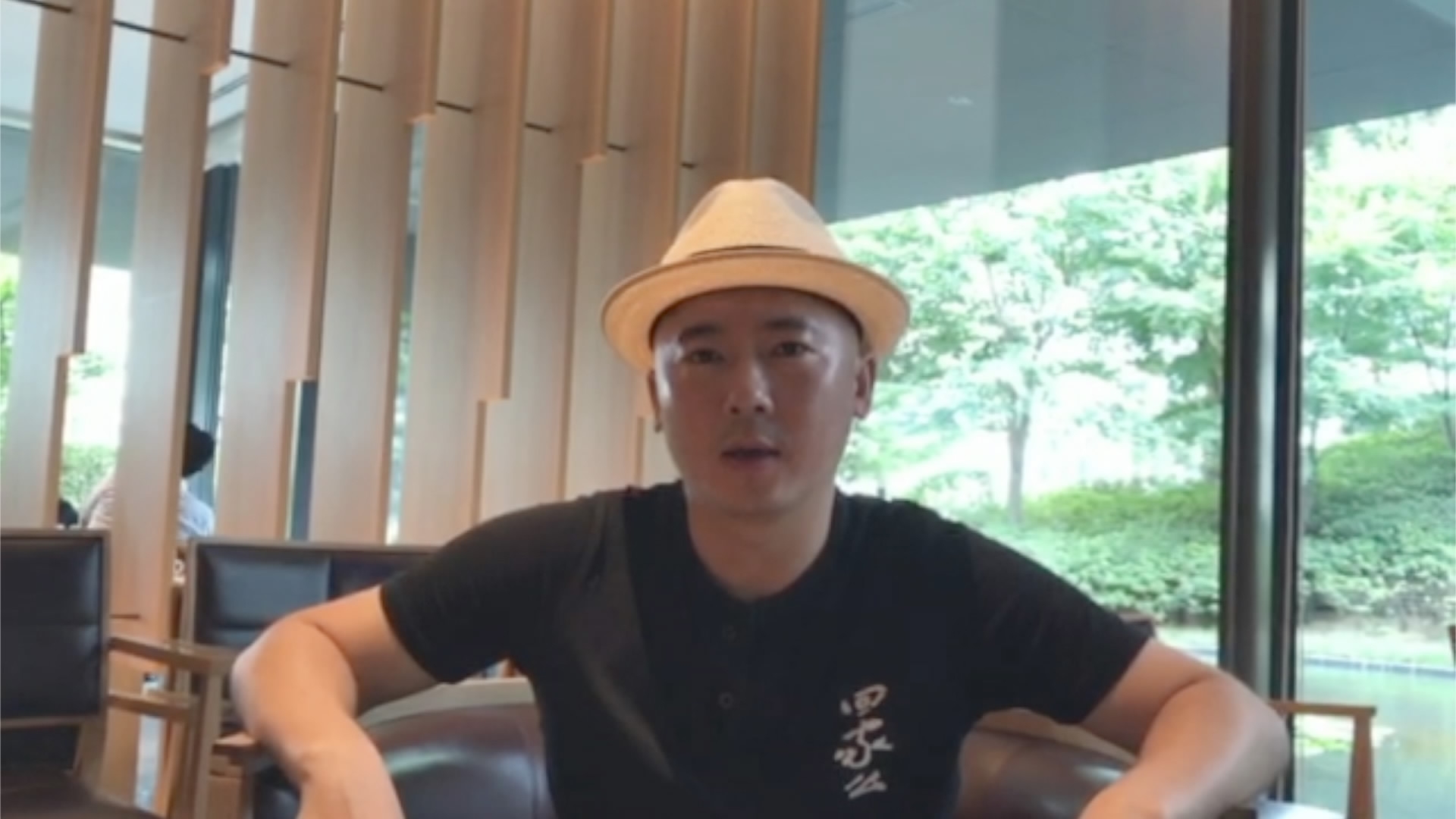
"Many Chinese parents worry that their children would spend their few idle months lost in the virtual world of 'Honor of Kings,' a popular mobile game," he said. "I dreamed of a better way for my children to spend their vacation. Well-off families have shown staggering passion for sending their children abroad to study during the summer holiday."
Wang said the US and England tend to attract the majority of these students, but the programs offered are extremely expensive. He said programs like NASA's Space Camp can cost nearly 40,000 yuan (5,715 US dollars) and even close by camps in Singapore can average about 10,000 yuan (1,429 US dollars) for six days.
"Over the course of 10 days, we bring a world-class museum experience to any family in the comfort of their own home, all for less than the cost of a single meal," Wang said.
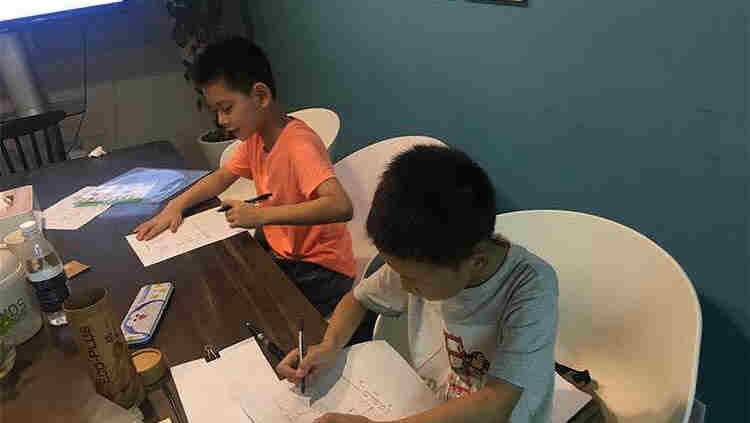
Students from the Aha School/ Courtesy: Aha School
Students from the Aha School/ Courtesy: Aha School
He did exactly that in late August giving students the opportunity to experience life abroad without the significant travel expenses.
Assignment education
"I visited Sichuan province in southwestern China to see how the people there were using education to alleviate poverty in largely Tibetan-populated areas," Wang said. "I suddenly wondered whether it would be possible to give these children the chance to experience a few world-class museums, just as my son was able to do as a child."
Wang said by late June his mind was made up.
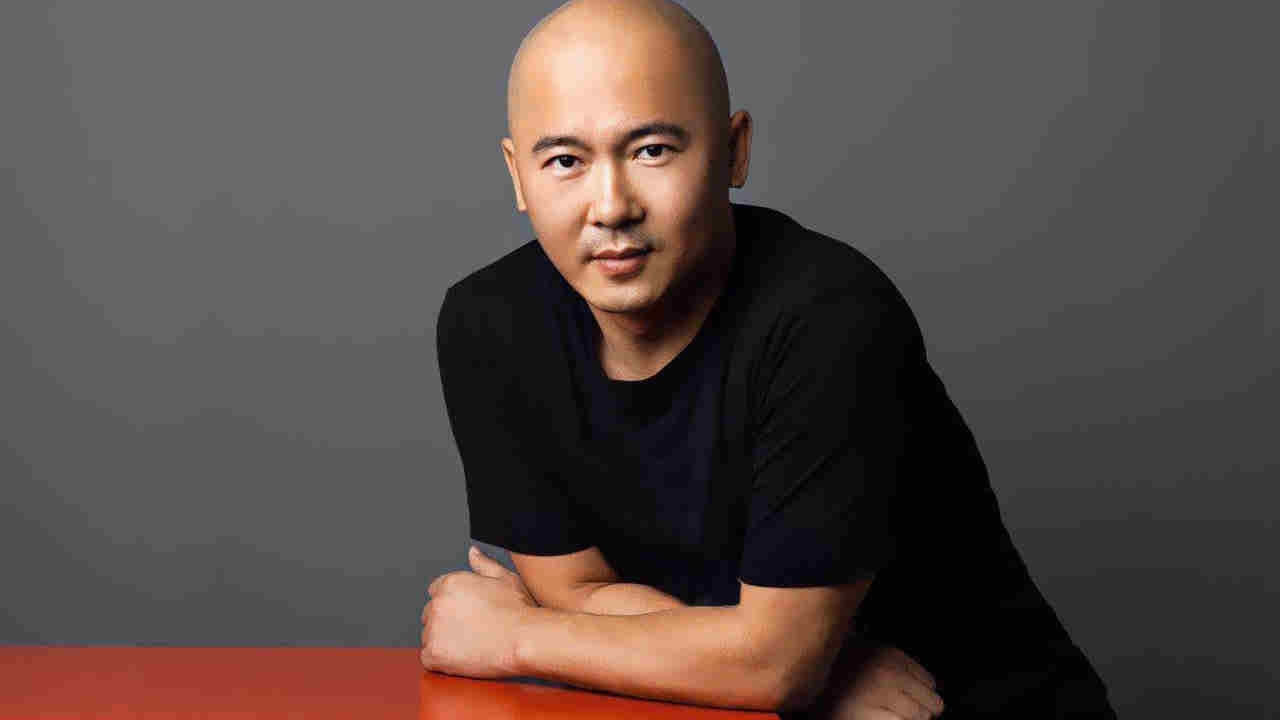
Wang Yuhao, Founder/CEO Aha School/ Courtesy: Aha School
Wang Yuhao, Founder/CEO Aha School/ Courtesy: Aha School
"My vision was to bring specialized museum knowledge, enthusiastic broadcasters, and one-of-a-kind exhibits together," he said. "My team and I would broadcast a live stream from a different museum in a different city each day."
Wang launched the education project "100,000 Kids Touring the World's Top 10 Museums." Families paid Aha 19.9 yuan (2.85 US dollars) so that students could watch the virtual experiences. At the same time, the company donated the broadcasts to 174 rural classrooms in China as a public service.
"I wanted to bring together 100,000 families, Wang said. "Because with that many families involved, the cost per family would be about the same as a Big Mac."
Wang and his colleagues compiled a list of the world's top museums they wanted to feature and got to work.
They turned to social media platforms like WeChat to engage with families in China to see if his virtual dream could become a virtual reality.
"By cooperating with verified social media accounts, we were able to expand our audience steadily," Wang said. "First to 50,000 families, then to 100,000, and finally to 150,000."
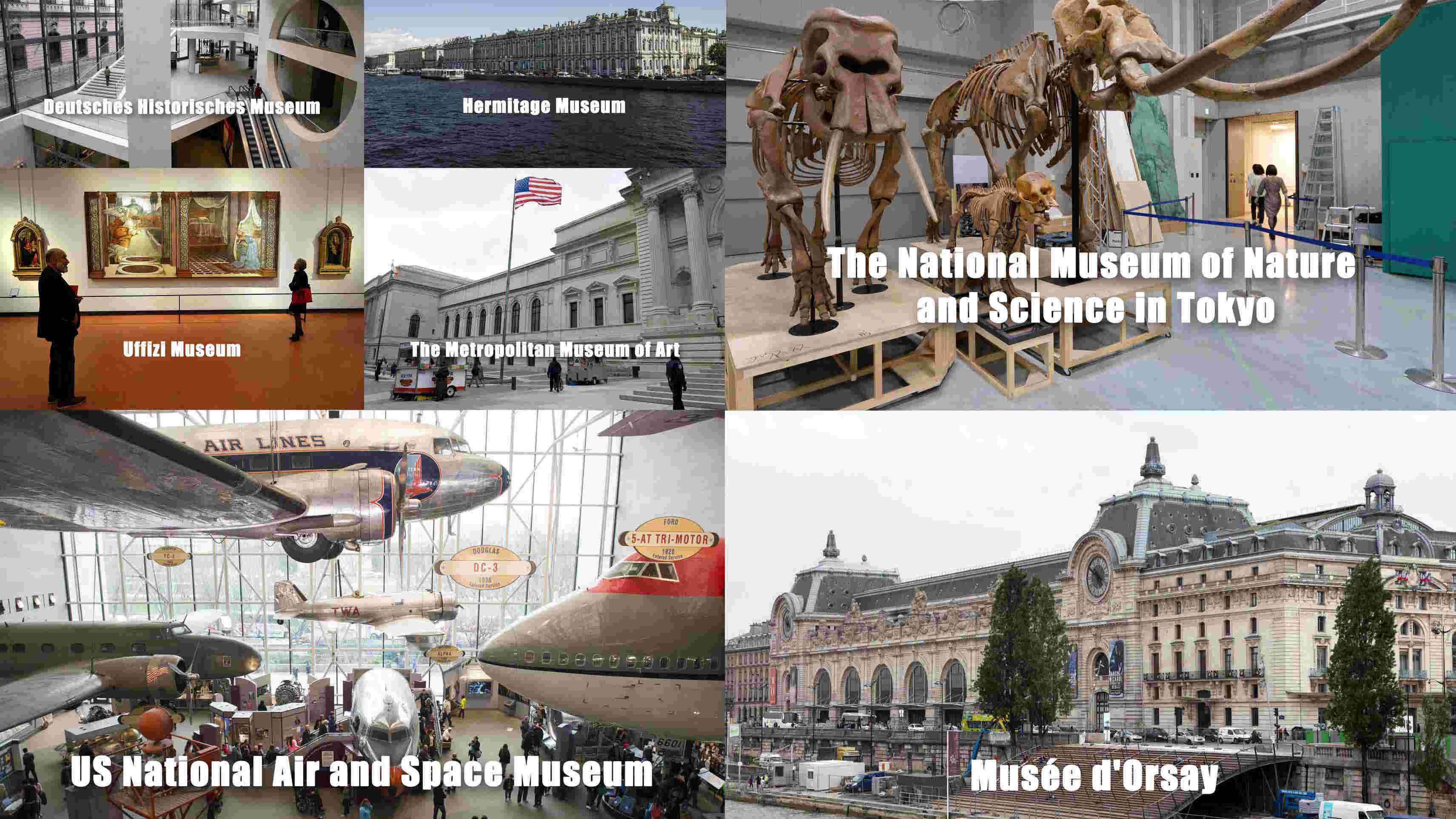
Head of the class
Improving the quality of education in rural and poverty-stricken areas is among China's key tasks, Education Minister Chen Baosheng has said.
China released a plan in 2015 with an aim to strengthen the construction of a team of rural teachers and support their work – the first such plan since the founding of the People’s Republic of China, the minister noted.
According to the plan, Chen said the central government has provided more than 5.2 billion yuan (753 million US dollars) to aid 81,000 schools and some 1.3 million rural teachers have benefited from governmental support to help with the quality of education.
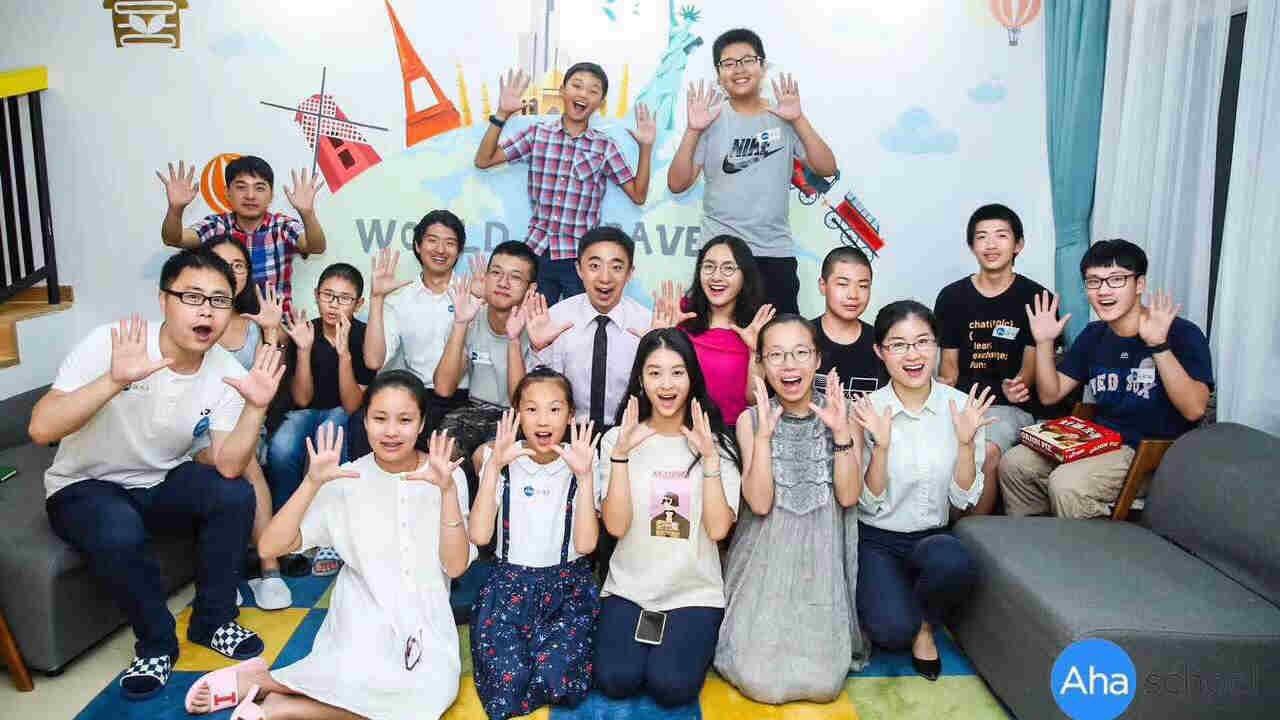
Students from the Aha School /Courtesy: Aha School
Students from the Aha School /Courtesy: Aha School
Despite the incentives, many rural teachers still move to urban areas creating a divide between rural and urban education.
To compensate the disparity educators, Chinese cities have been experimenting with programs like this one from Aha, in which virtual lessons are beamed into rural classrooms.
Because live-streaming is a technology that is already widely popular on Chinese social media platforms, the Aha School is hoping to use it to help improve long-distance education in China.
Sign of the times
The school has grown significantly in a short period of time proving the relevance of virtual learning. Educational live-streaming is growing in China as the medium expands beyond purely social uses, according to a report from Daxue consulting, a Beijing and Shanghai based market-research firm.
In July, China announced a deadline of 2030 for the country becoming the global leader in artificial intelligence. The plan also includes the development of digital infrastructures in education.
"Education is very important to Chinese families, and technology and big data are the future," Wang said.
(Video editing, translations, and subtitles by Li Tainfu and Zhu Danni)

SITEMAP
Copyright © 2018 CGTN. Beijing ICP prepared NO.16065310-3
Copyright © 2018 CGTN. Beijing ICP prepared NO.16065310-3